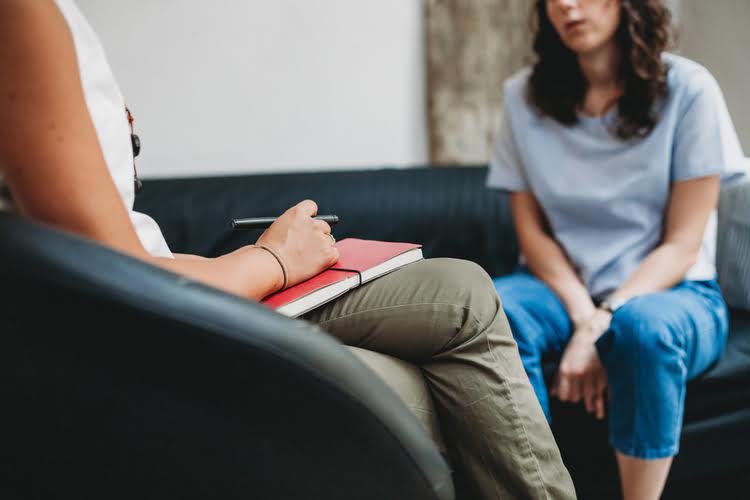Content
Dr. Cusner also strengthened the business growth of the Ohio facilities by 12%. He was recognized by the Governor for demonstrating a “care-conscious approach” during COVID, when Dr. Cusner carefully consolidated facility residents to accommodate staff and improve clinical care. Dr. Cusner demonstrates a results-driven culture by delivering https://www.healthworkscollective.com/how-choose-sober-house-tips-to-focus-on/ a high-quality level of care and employee engagement. He has published and presented research articles in the field of organizational psychology at national healthcare conferences. Dr. Cusner is completing a book on organizational psychology in the healthcare field, which is expected to be published late early summer 2022.
Is not sleeping for 24 hours alcohol?
Being awake for 24 hours is similar to having a BAC of 0.10% (above the U.S. drunk driving level of 0.08.
In low doses, it can be stimulating and a moderate amount can decrease your levels of the sleep hormone melatonin. It’s best to stop drinking three to four hours before bed, or check the RISE app for your individual alcohol cutoff time, based on the timing of your body clock. In low doses, alcohol can act as a stimulant within the first hour of drinking it. Sugary drinks or anything containing caffeine can make you feel more alert and you may also be getting late-night light exposure or eating large meals, which can also make it harder to fall asleep. As a general rule, you should stop drinking alcohol about three to four hours before bed to give your body enough time to get it out of your system so it doesn’t disrupt your sleep.
Coping With Alcohol-Related Sleep Problems
In addition to psychiatric comorbidity, such as depression, researchers have identified other variables that can influence sleep measures in recently abstinent alcoholic patients. These inconsistent findings regarding REM sleep may reflect differences in alcoholic subtypes in the different studies. Thus, persistent REM sleep abnormalities were most evident in depressed alcoholics (Gillin et al. 1990a; Moeller et al. 1993) and alcoholics who subsequently relapsed (Gillin et al. 1994; Brower et al. 1998). For example, many alcoholics in post-acute withdrawal have insufficient levels of excitatory neurotransmitters (like dopamine) during the day, which can make it harder to fall asleep at night. This situation could be helped immensely by an herb like mucuna pruriens, or an amino acid like DLPA. We will now proceed to discuss why it’s so difficult to sleep during alcohol withdrawal, followed by my Top 10 Remedies to resolve insomnia after quitting drinking.
The studies measured sleep characteristics at baseline, after drinking, and during acute alcohol withdrawal. Note that the size of the bars indicates only the direction, but not the magnitude, of the changes. Both after drinking and during withdrawal, sleep latency increases and total sleep time decreases, compared with the response at baseline. Both the percentage of deep sleep, or slow-wave sleep (SWS), and the rapid eye movement (REM) sleep latency increase during drinking and return to baseline levels during withdrawal. Although SWS% returns to baseline values during withdrawal, researchers should note that baseline values of SWS% in alcoholics are still lower than values from control subjects. REM% decreases with drinking and then returns to or even exceeds baseline levels during withdrawal.
How to sleep better after drinking alcohol
The end result is that you can wake up dozens or even hundreds of times during the night and not realize it, interrupting your natural sleep cycle. Alcohol withdrawal can begin within hours of ending a drinking session. Alcohol consumption decreases melatonin production — regardless of whether the sun is down. One study found that drinking alcohol an hour before you go to sleep can suppress melatonin production by 20%. This means the excitatory nerve cells in your brain are suppressed, so you fall asleep.
I’ll then review some lifestyle strategies that I still use to this day to ensure a great night’s sleep. For this reason, a person may need to drink increasing amounts to fall asleep, increasing the risk of alcohol abuse and addiction. Researchers sober house have found that insomnia is a risk factor for alcohol abuse. One study shows that this is the reason about 10% of people drink alcohol. Because alcohol can have a depressive effect on the brain, drinking may help some people fall asleep faster.
Can Alcohol Cause Sleep Apnea?
For example, you might want to be notified six hours before your Melatonin Window if you want to further reduce the risk of sleep disruption or if you know you’ll be drinking a lot that day. The timing of the window can change depending on the previous night’s sleep times. RISE tracks all of this, predicts your Melatonin Window, and tells you the ideal time to have your last alcoholic drink. As well as disturbing anyone you share a bed with, snoring and sleep apnea can both lead to sleep loss and lowered daytime energy. And sleep apnea can also lead to serious health issues like high blood pressure, diabetes, stroke, and heart disease. In fact, one study found even a moderate serving of alcohol before bedtime impacted REM sleep, which resulted in reduced memory of a recently learned task.

However, these nutrients taste pretty terrible, so they’re not often found in blends. This supplement absolutely works to bring on sleep more quickly and to provide a deeper night’s rest. Shipping is free, and if Sleep Support doesn’t agree with your biochemistry or help you sleep better, you can return it for a full refund. Once you find out which herbs work best for you, they’ll become part of your anti-insomnia (and anti-anxiety) arsenal for years to come. Other physical signs of withdrawal may include tremors, shakiness, nausea, vomiting, headache, sweating, heart palpitations, and more. Stopping the use of alcohol because it is causing problems in your life takes courage and commitment.



Leave A Comment